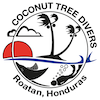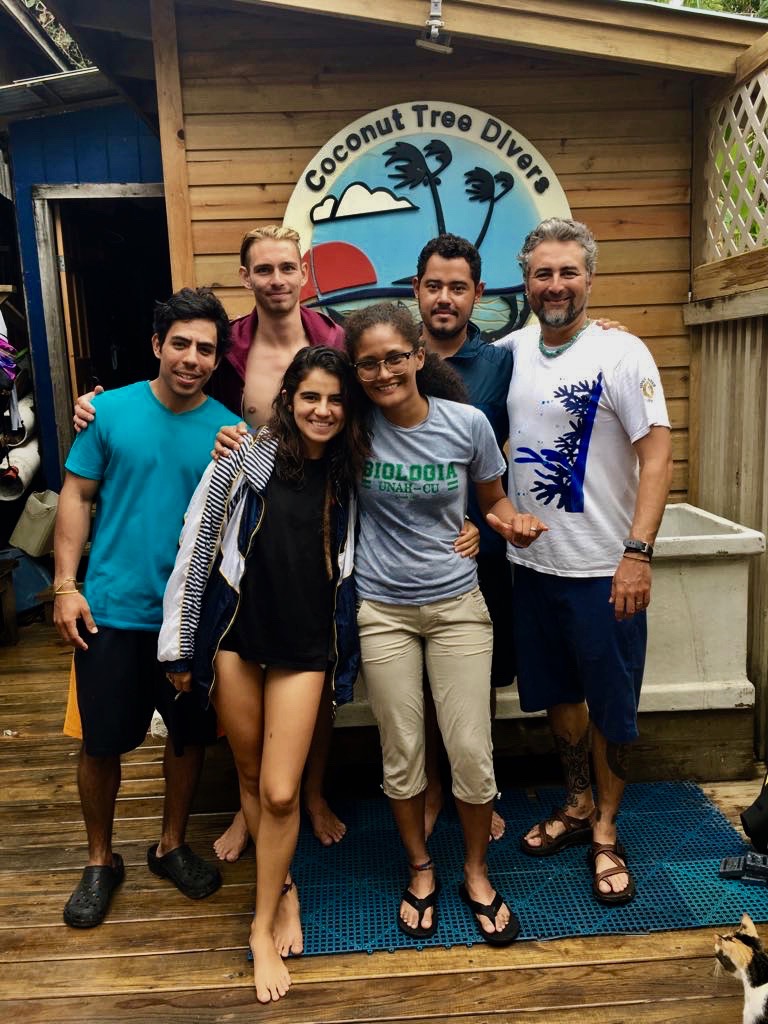
We were never fans of report cards growing up. A percentage or a letter used as a representation of who we are as people and what we might be capable of was largely useless. Whether our report cards brought us praise or groundings we found they weren’t really useful for telling our story, what we did right, what we did wrong and how could we could improve.
When the Healthy Reefs Initiative began the Mesoamerican Reef Health Report Cards 10 years ago, they wanted to create an understanding of the management of an ecosystem that sustains our culture, fisheries, coastal protection, and tourism. The HRI completes these surveys to create accurate, science based knowledge to inform dialogue and collective management in the Mesoamerican Reef (MAR). Unlike our school grades that gave us meaningless percentages and letters based on performance, this report card teaches us where we are going wrong and how we can change for the better.
Ian Drysdale (Representative for Honduras in the HRI) and his team made our boat Pot Licker their ‘home’ for a week as they completed this years reef health investigation in Roatan. To the inexperienced eye it looked as though they had an obsession with PVC, slates, and rubber bands but we knew that although that may be true, it was their love for the reef that had those volunteers jumping 4-5 times a day to survey over 25 sites in Roatan alone. The heroes involved this year were a mix of students from mainland and local conservationists who gave their time, energy, and expertise to successfully complete this years survey. Each volunteer was trained through a program called AGRRA (Atlantic and Gulf Rapid Reef Assessment) who have developed a standardized assessment with the ability to be applied to many different reef types.
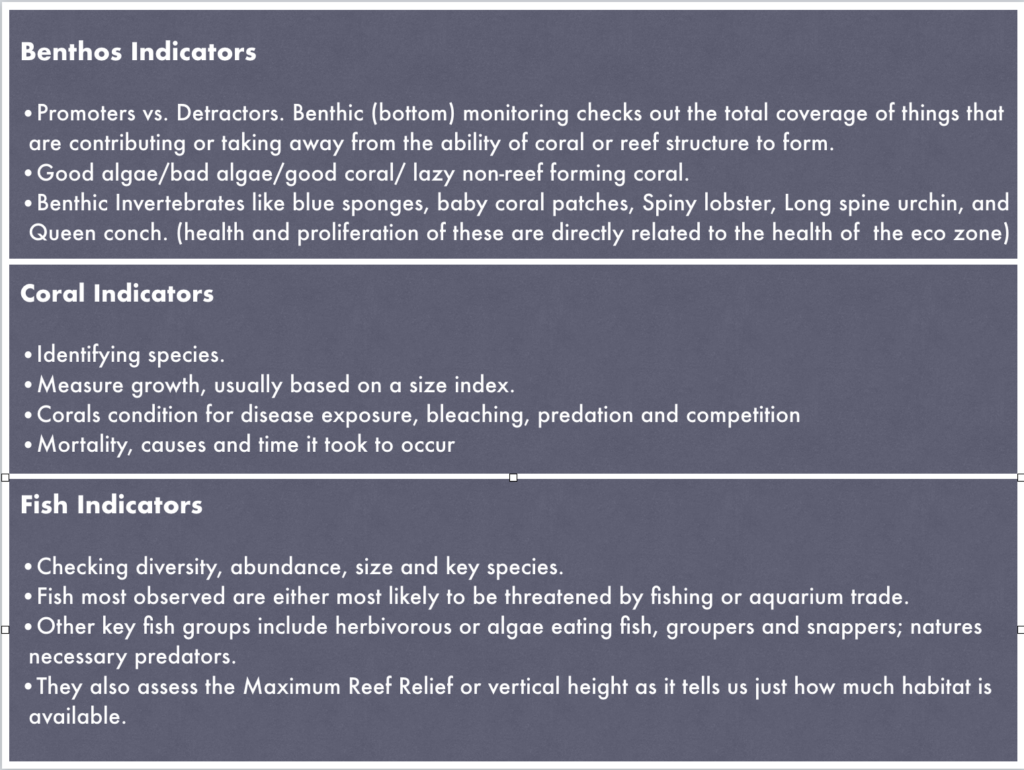
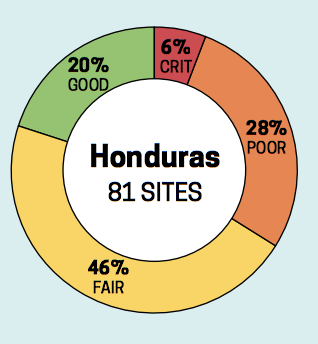
Extremely simplified explanation of survey methods
Ouch, that’s a lot of yellow.
In understanding and comparing changes in benthic, coral, and fish indicators using this AGGRA method, the Report Card has been able to collect and compare data giving us a real long-term picture of what has been happening in our waters.
The chart to the left was taken from the 2018 MAR Report Card and represents the surveys conducted by the team to quantify our reef health. Honduras was given a 3.3/5 in the Reef Health Index and was one of the few areas surveyed to experience decline since 2015.
The majority of the volunteers had helped complete the surveys previous and were pretty well informed with the issues in Roatan. The week of the survey was sympathetically rain filled and added a lot of ambience to the disappointed faces, but this crew was much more interested in the positive aspects. On one of the last days we were huddled under the shelter of Potlicker, sharing sips of warm tea, to discuss just why we were experiencing a decline.
First off, they said, Roatan was doing a lot of things right.
Amazingly our coral coverage was some of the best in the Caribbean and that part seems to have held. The reason? Our Marine Park. The Roatan Marine Park (RMP) has been doing a heck of a lot more than putting in your mooring balls. They are patrolling, educating tourists, developing our communities and changing the way we use plastics. They do this through the continued support of sponsors, visitors, and community. Reasons to support them, in whatever way we can, whether it’s through donation or active participation is being proven by these studies, and it’s awesome.

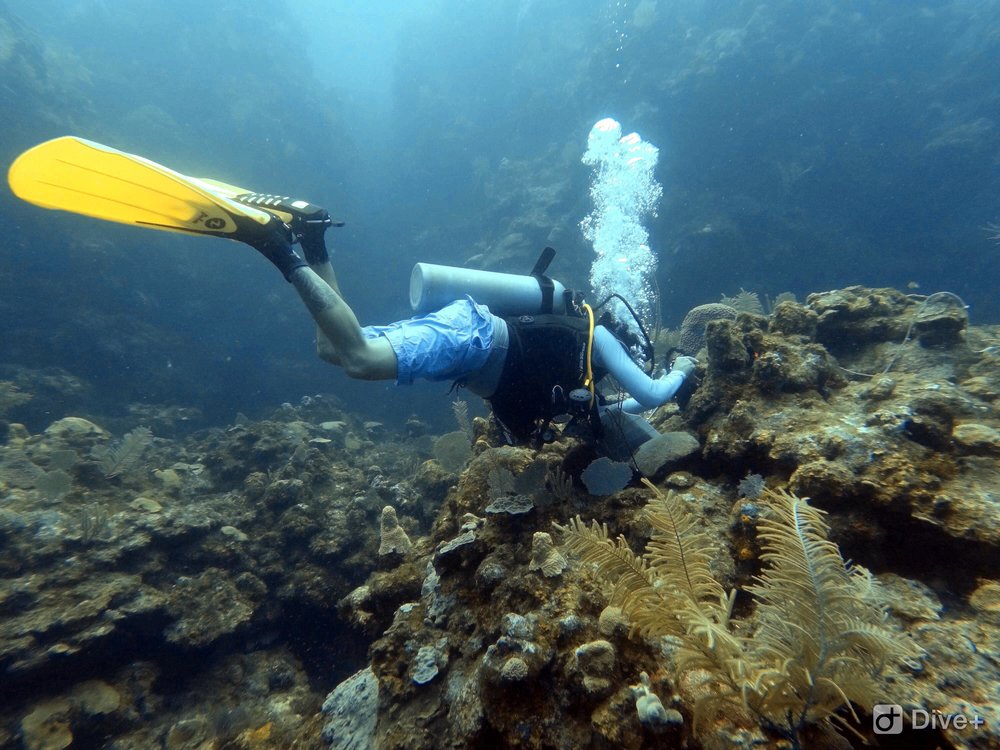
What is not so awesome is that Roatan has too much macroalgae.
According the report card, this is our number one ‘Calls to Action’. It’s one of corals biggest competitors here, and it’s growing and spreading at a very serious rate.
Fleshy macroalgae in Roatan is blanketing areas of the reef, completely taking over the environment. In small quantities the aptly named ‘fleshy’ algae provides food and oxygen exchange, but human intervention has tipped the balance invariably in it’s favour. Wonderfully, their data, doesn’t just prove we have too much algae, it also tells us why.
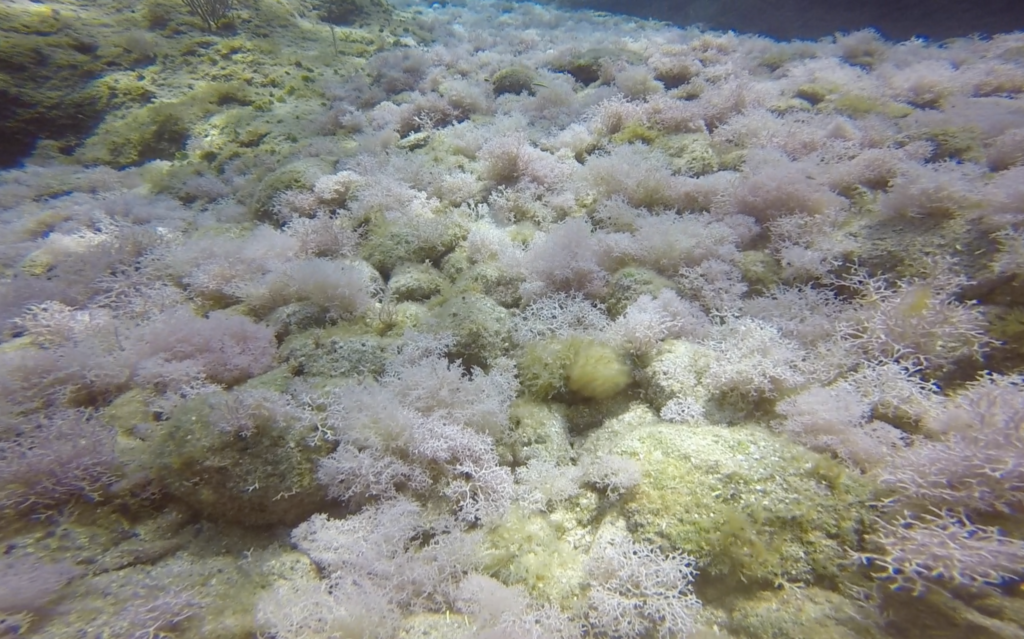
Turns out, it’s shit. Not shit the expletive, shit the excrement. West End is the only area that adheres to fecal health standards in all of Roatan. Even the main city of Coxen Hole is only about 10% connected to it’s treatment facility. This doesn’t mean that there are little turds floating around everywhere else, but we as humans happen to excrete nutrients and those nutrients are changing the environment around our island. With cruise ship traffic, tourism, and immigration increasing, the volume of defecation on our reef is also increasing. This provides the perfect conditions for macroalgae to grow.
In Half-moon Bay, they said they have seen and confirmed the improvement to reef health since the establishment of a wastewater system and all the houses aren’t even connected (although, that’s the goal!) . Only 15% of blackwater in the Caribbean is currently being treated, so it’s pretty cool that our little island is a part of that. If we can do it through the efforts of our community members, we hope that our grassroots example will spread and our island can be a role model in effective solutions.
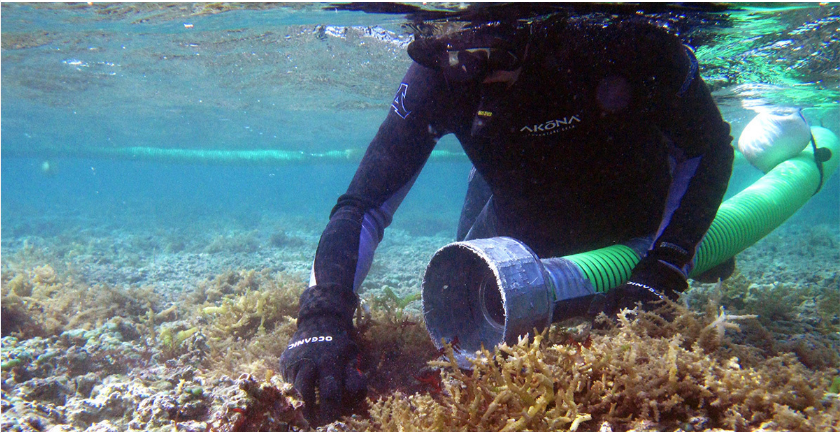
Once the algae has been sorted to insure the non offending critters are returned to the water, it can even be used as fertilizer! HAWAII’S DIVISION OF AQUATIC RESOURCES
To deal with the algae we already have they offered the possible solution of using reef weeders or underwater vacuums. These ‘super-suckers’ will allow us to fully remove the algae leaving space for new coral to form and suffocating coral to flourish. Hawaii has already been implementing these vacuums to increase reef health in their own areas and are open to sharing their knowledge in an effort to improve ocean environments around the world.
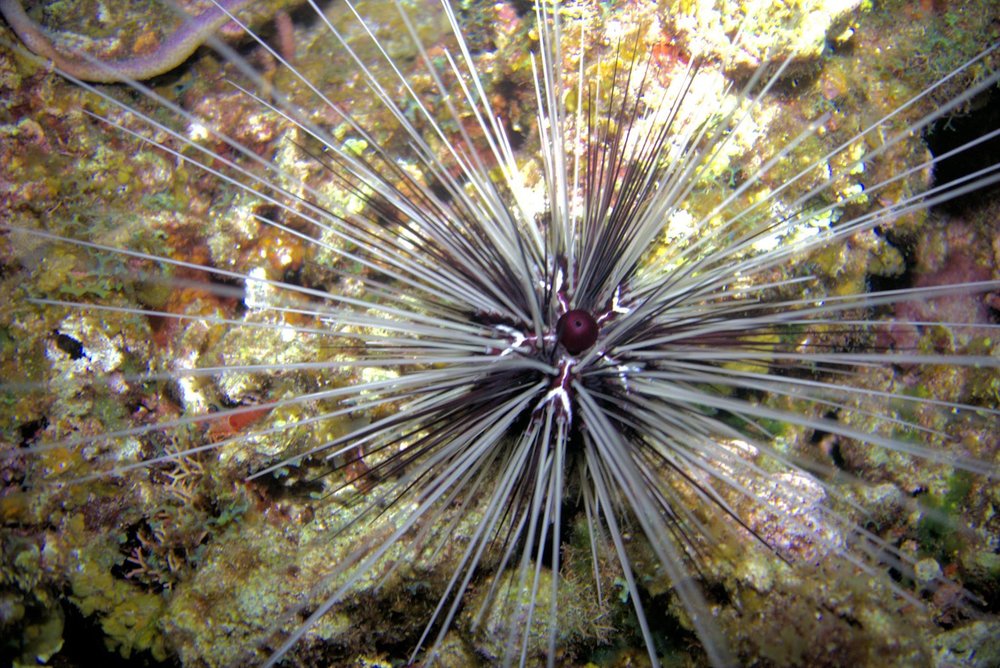
You can’t tell because of the lights but this bad boy was caught on a night dive here in Roatan by one of our regular guests!
The next step that is still being explored, is the re-introduction of our pointy little friends; the Long Spined Urchin. Our sneakiest and spikiest algae eaters were wiped out by disease in 1983 have seen very still seen very little comeback in our area. The team was very enthusiastic for re-intro as an option. Herbivorous fish numbers like parrot fish and blue tangs are up, but without our urchins feeding in the hard to reach spots, it’s unlikely the natural balance can be restored.
It was amazing to get involved with this years Report Card. Not only did we get to see some of the most enchanting dive sites in the MAR, we got to hang out with the important and amazing individuals who are working everyday to ensure the future of our reef. Although these solutions are simple, we know that implementing them is going to be a lot hard work. We look forward to helping these guys out as these projects move forward, channeling our love and knowledge into this world that we call home!
We just want to say a big thank you to everyone who is doing their part. When it comes to the environment and trying to save it, we get it, some of us weren’t born to be the heroes of epics but we all fight our own daily battle to improve the world around us and that is amazing. Each person has their own impact and we thank you for yours. We also want to thank all the organizations working with our communities planting coral, working with our governments and cleaning up garbage. It’s important and you are important.
Thanks Again, to Ian and his team for keeping the world up to date with our reef. This information will allow our guests and divers to engage with our island as they enjoy the beauty that we have been afforded through the efforts of many, and understand the work that they are doing. Thank you for showing us a world with solutions and a world with hope.

A list of sponsors who all contributed to the 2018 Report Card!
So long and thanks for all the fish!
If you want to learn more about ways you can help you can always contact us at [email protected] and we would be happy to answer questions about how you can get involved on your holiday. If you just want to come down and see some of the healthiest reefs in the world, check out our websites for package options. Our shop is located in Halfmoon Bay and we offer several conservation courses and complete regular Dive Against Debris course and volunteer dives. As always my source information is included in the page with links to the relevant sections.
Rachael Sorochan
